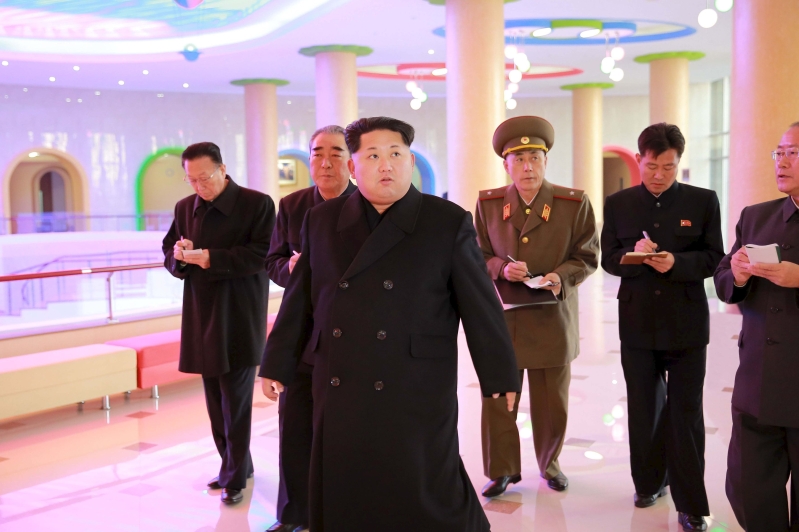
A coalition of South Korean Catholic Bishops have announced they will be making annual trips to North Korea following a historic four-day trip across the border.
According to a report from the Korea Times, the Catholic Bishops' Conference of Korea (CBCK) said yearly services will be held at Changchung Cathedral in Pyongyang - the only Catholic church in the entire region - to celebrate major Catholic feasts.
Speaking at a press conference in Seoul, CBCK spokesman Lee Young-Sik said that the first visit was scheduled for Easter in March 2016.
"And then we will iron out details on how frequently they would visit and lead a mass there," Lee said, adding that "the meeting laid the foundation for further cooperation and exchange among Korean Catholics."
The decision was made after 17 representatives from the Catholic Church in South Korea, including president of the CBCK Archbishop Hyginus Kim Hee-joong, visited the North upon the invitation of the State-run Catholic University of Korea.
The trip was aimed at helping promote reconciliation between South and North Korea, as this year marks the 70th anniversary of Korea's liberation from Japan's 1910-34 colonial rule, the report notes.
According to a report from Fides News Agency, talks were also held about the possible construction of a church in Pyongyang.
Father Timothy Lee Eun-hyung, secretary of the Bishops' Committee for the Reconciliation of Korean People, told Fides: "We need to consolidate this platform of reconciliation exchanges and collaborations. Today's Koreans can focus on the future. But now, young people risk becoming indifferent to a past they did not experience first hand and there is a risk of a growing indifference towards the desire to reunite the Korean people.
"We need to set aside aggressive attitudes, and walk the path of inclusion, forgiveness and reconciliation, which also Pope Francis mentioned when he came to Korea," he added.
For the 13th consecutive year, North Korea has ranked No. 1 on Open Doors USA's World Watch List of the 50 countries where persecution is most extreme.
"The god-like worship of the leader, Kim Jong-Un, and his predecessors leaves little room for any other religions and Christians face unimaginable pressure in every sphere of life," notes Open Doors.
But it wasn't always that way: In the early 20th century, Pyongyang was a "regional missionary hub with scores of churches and a thriving Christian community that earned it the title of 'Jerusalem of the East'", notes the AP. However, believing Christianity threatened his monopoly on ideology, North Korea's founder leader Kim Il-Sung ordered it to be effectively eradicated.
Today, the current regime under Kim Jong-un allows Catholic organizations to run aid projects in North Korea, but direct relations with the Vatican are non-existent.
Additionally, only conversion to a state-sanctioned Christian church is allowed in the country, and becoming Christian without the government's approval could lead to arrest, torture or a death sentence, according to a new report from Aid to the Church in Need International.
When Pope Francis visited South Korea last year, he held a special mass in Seoul dedicated to reunification of the two Koreas.
"All Koreans are brothers and sisters, members of one family, one people," he said.







